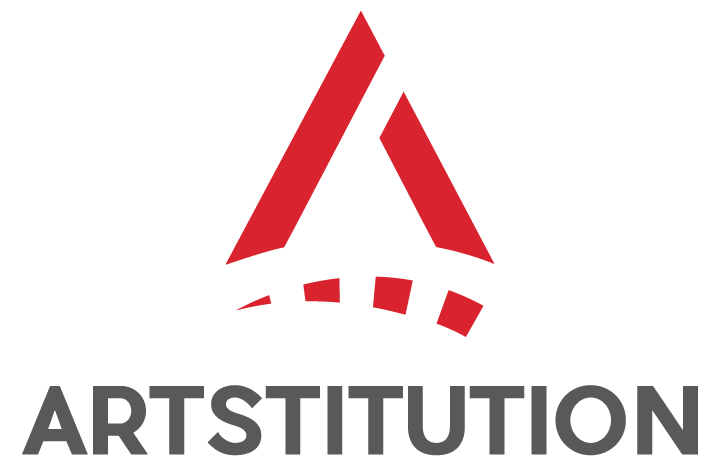As I wrote last week, my day job is at The Richmond Forum as Communications Associate. My “side gig” is the work I do here for Artstitution and the Artists at Work podcast. (The latest episode, featuring Princess Johnson, is out now.)
I enjoy graphic design, doing crossword puzzles, and watching streaming series. (Lately it’s been the final episodes of Unbreakable Kimmy Schmidt, and the first few episodes of The Assassination of Gianni Versace: American Crime Story. I’m enjoying it so far.)
In the spare moments that we have between our jobs and studies, my wife and I spend time together by either standing in and enjoying each other’s company, or going out to arts events.
“Face Mask with Feathered Collar”
Virginia Museum of Fine Arts
We took in the “Congo Masks” exhibition at the Virginia Museum of Fine Arts this week. I was amazed at the variety of materials and designs that the various cultures used throughout the Congo region of Africa. It also illuminated just how little I know about other cultures - African cultures in particular. The exhibit is showing for another few weeks, so please go see it when you get the chance.
All of this to say is we’re all busy. Life happens. We get bogged down in the details of the day-to-day and forget to take a step back sometimes. We can get lost in those details.
A friend of mine just came back online after a month-long social media detox. Grace realized just how much of habit she had built of picking up her phone, going to Safari, and logging into Facebook. She wrote a great blog post about it.
My wife, similarly, just deleted her Facebook. She said it wasn’t contributing meaningfully to her life anymore. She’d often spend her time procrastinating by scrolling through her feed rather than pursuing her studies or hobbies. I admire her for recognizing that and taking action.
My life, unfortunately, relies on social media right now. Between operating The Forum’s social accounts, and those for Artstitution, I use it as a tool to share my messages with the world. It also helps keep me connected with people. But as Grace pointed out in her blog, being off of social media has made her realize that though she liked and occasionally commented on her friend’s posts, it’s largely an illusion of connection that social media creates.
I think she has a point. There’s a lot of superficial communication and “friendship” that happens via internet channels. But I think there can be meaningful connections, too. We just need to be careful and intentional about how we use the tools we have.
I’ve thought a lot about connection over the past few years. As a writer, it’s a theme that shows up in the songs and stories I create: how we connect to one another, how we connect to ourselves, what those connections mean.
It’s a major theme of the musical I’m writing: Letters from Camp Hope.
It’s about an 18-year-old about to graduate from high school who suffers from depression. Claire struggles with the emptiness it creates inside her, the specter of her future and the prospect of college, and the loss of her closest friend. She attempts suicide and survives, and is admitted to an outpatient facility in the mountains of North Carolina. There, she meets other people dealing with similar issues, and together they work to find meaning, connection, and hope.
You may now understand why this blog post is called “Unhappy Campers.” I thought it was a fun little joke at my own story’s expense. I like puns and “clever” titles. (That needs to be in quotes because I roll my own eyes at myself sometimes.)
I think it’s easy in this day and age of the internet and extreme connectivity to be overwhelmed by the sheer amount of information we’re exposed to every day. Claire and the other characters in the story certainly do. I do in my life. Friends of mine do. My wife does. It’s a defining characteristic of our time, and also of my generation.
We’re largely tired, stressed, and unhappy. But we’re also energetic, entrepreneurial, and face some of the best health prospects and technological advantages of human history.
This phenomenon isn’t unique to my generation; each generation deals with it in its own way. But we’re the most connected to each other, and we’re the generation who can most clearly see that others are dealing with the same issues and we’re not alone.
So keep those chins up, campers. Have a little hope.
Until next time,
Thomas Breeden
Founding Director
Artstitution
tbreeden@artstitution.org


